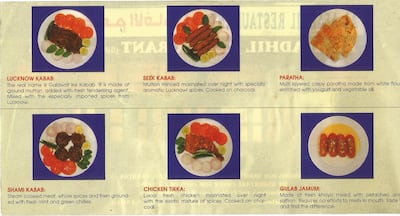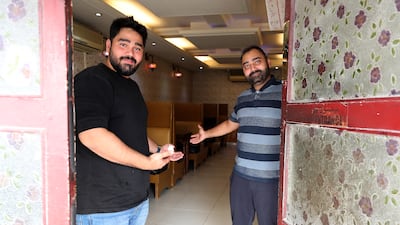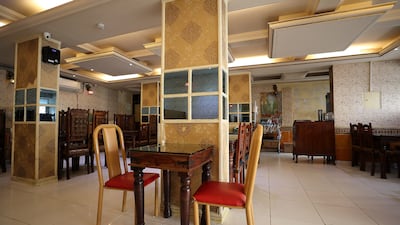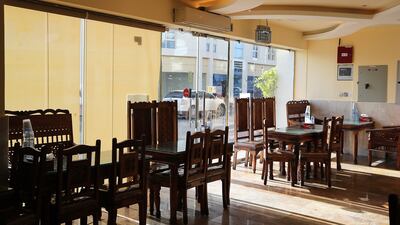When Syed Jafar Husain arrived in the UAE from India in the 1970s he longed for home.
Like countless others who came in search of a better life, he missed family and friends but there was also one other important ingredient missing — the food.
He longed for the spiced, slow-cooked kebabs and thick sweet lassi of his native Lucknow.
Mr Husain left his job in sales and opened a small restaurant named Al Afadhil dedicated to the traditional food of his home city.
He never hired a chef and made the food himself. Al Afadhil first opened on Dubai Creek in 1979 and moved several times before settling in its current location in Al Nahda, Sharjah in 1990.
Today, trucks from the adjacent industrial area rumble past the dark wooden doors, while the clank of weights drifts across from a nearby gym. On the side of the wall is a simple sign stating: “Lucknow Kabab”. Inside is a collection of small tables and booths. A simple menu, barely unchanged in decades, lists only seven recipes.

Mr Husain died in 2018 but his legacy is being carried on by his two sons, Mohammed, 30, and Mustafa, 27.
It has become renowned among generations from Lucknow and, to this day, has only a handful of items on the menu.
“My dad simply missed the traditional food of Lucknow,” said Mohammed. “In the early 1980s there just weren’t as many options.”
One of the specialities is “galouti kebab” that takes about 14 hours to prepare. The dish has its roots in the historic royal kitchens of Lucknow and consists of tenderised, soft lamb mixed with spices, slow-cooked and served with a tamarind chutney that is a family secret.
This dish costs just under Dh14. A thick sweet lassi that people dip their paratha into is also a favourite.
“Nothing can be changed in the recipe,” said Mohammed. The two brothers work seven days a week from 4am to the afternoon to ensure they respect their father’s legacy.
Customers who have left the UAE have also spread the name of the restaurant far and wide. They even catered a wedding in Bonn, Germany. “We have fans across the world,” said Mohammed. “They tell us our food has to be there when they have guests over.”
Al Afadhil (it loosely translates as “generous”) moved from its first location in Dubai to Sharjah's Bank Street in the 1980s. Bank Street has since been restored to a heritage area known as the Heart of Sharjah but it was here where the restaurant made its name. Scores of workers in offices and banks there came in droves in search of a taste of home.
“Customers used to fight to get into the place,” said Mohammed, with a smile. “The majority of the crowd told dad to increase their prices and stop giving it for cheap but he said no. He never wanted to overcharge. To this day customers say the same. We say no.”
After Bank Street, it moved to Al Nahda. A second branch opened in Dubai’s Karama in 2014 which is now the most popular of the two.
The pandemic and rising costs hit the business, but now the brothers said it is back to about 60 per cent of what it was.
Today they employ more than 20 staff across two branches. People from the Lucknow community travel from across the UAE to eat there, while it also attracts celebrities from the cricket and entertainment world.
“My dad never thought of customers’ money,” said Mustafa. “He just wanted them to be happy.”
Mohammed said: “It is more than 40 years of legacy here. If we can improve and provide the same quality, then we will be following in our dad's footsteps.”












